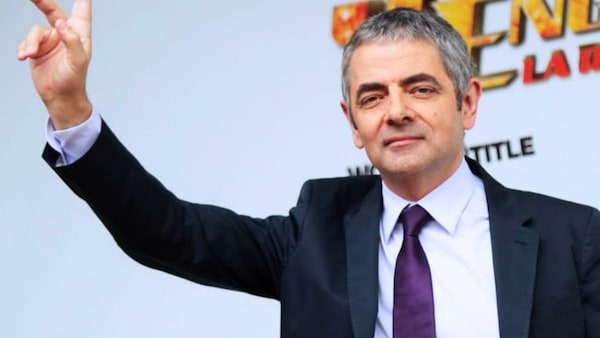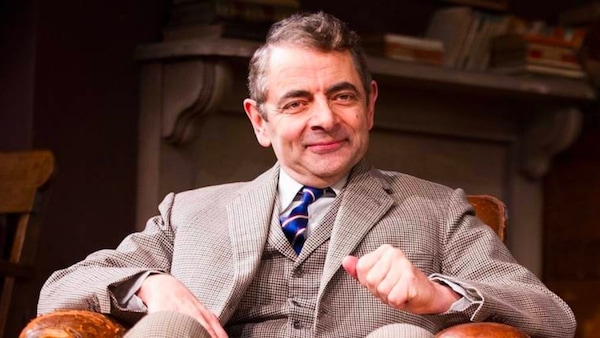Rowan Atkinson: A masterclass in physical comedy
As Rowan Atkinson turns a year older, here’s taking a deep dive into the veteran actor’s comedic career.

Last Updated: 10.13 PM, Jan 03, 2022
“I don’t much enjoy playing him. The weight of responsibility is not pleasant. I find it stressful and exhausting, and I look forward to the end of it,” comedian Rowan Atkinson famously said of his Mr Bean character, a global phenomenon that took the world by storm on its release.
The British veteran actor, Atkinson’s endearing qualities got channelised through Bean’s buffoonery, expanding the humble television series into a spate of sitcoms, films, animation series as well as books.
Having penned the character as a student at Oxford, Atkinson’s journey with his alter ego has seemingly come to a close. He admitted in an interview last year, that Bean’s insurmountable appeal clouded his other ventures (understandably so) and he got typecast very early, very fast.
However, Atkinson’s display of comedic prowess was years before Mr Bean hit home TV screens. Coupled with Richard Curtis, Atkinson developed a sitcom called Blackadder, that took its viewers through pseudohistorical periods in British history where Atkinson himself played the role of the main antagonist.
The show’s bizarre plots and on-the-nose jokes were an instant hit. Atkinson’s wily facial expressions and heavy physical humour perfectly suited Edmund Blackadder and his dim wits.
Though Atkinson took on writing roles only for the first season, his presence (both on and off camera) was evident. Atkinson played Edmund with exaggerated gusto, pulling in all stops to portray an over-the-top Shakespearian anti-hero.
While the first season showed him as a tactless scoundrel, much dafter than his servant Baldrick (Tony Robinson), the subsequent seasons amped up Edmund’s game. He not only transformed into a manipulative, shrewd character, but his evil ploys became even more enjoyable and unabashed.
Despite Blackadder’s mammoth success, Mr Bean did for Atkinson what the black and white cinema did for Charlie Chaplin. Bean, the pleasant loner and his everyday adventures became a household regular. Every television set would have children and adults equally enthused about tuning into Bean’s escapades to a city church or county fair.
Talking about the character, Atkinson had once said in an interview, “The French comedian Jacques Tati was very important for Mr Bean. I saw Monsieur Hulot’s Holiday when I was 17, and it just had a tone and an attitude and a slowness that I had never seen in a comedy movie before. That idea of expressing yourself entirely visually rather than verbally was inspired by him as much as anything else.”

And that is precisely what propelled the actor’s status as a maestro of physical comedy. From memorable episodes like the one in the swimming pool or the one where he cheats during an exam, are still etched in every then-teenager’s memory.
Atkinson’s comfort in slipping into Bean’s persona often attracted questions about the actor’s real-life personality. The transformation was so seamless, many even wondered if the actor was way wackier.
Atkinson’s on-screen exploits continued with the Johnny English franchise, a Pink Panther-esque detective who was full of himself to actually be taken seriously. Draped in dapper three-piece suits, Johnny was all about the pregnant smoulder and constant faux pas.
Atkinson cleaned up well for the role, with a neat crew cut and black tuxedo. Self-centred and self-regarding, Johnny then became a spectral opposite extension to Bean.
All Johnny desires is the ‘shmancy’ that comes with being in the secret service. Fast cars, picturesque locales and preferably gorgeous women with svelte frames keeping him company – these constitute his world of priorities.
When asked if Sean Connery (as James Bond) was the inspiration behind the attempted baritone and dialogue deliveries with a raised eyebrow, Atkinson had admitted that Roger Moore was a much bigger influence behind him developing English as a character.
But the relentless comedic content from Atkinson also ate into his opportunities to showcase his talents in other kinds of roles. During his later years, the actor has often agreed that he fell a victim to typecasting. “I can see myself in some Dickensian role, those sorts of characters. But I think I might have burnt my bridges with the outright silliness of so much of what I’ve done.,” the actor had once said.
Though his works may be shadowed by a few roles, Atkinson’s contributions to the field of comedy and spontaneous acting remain unparalleled to date.

